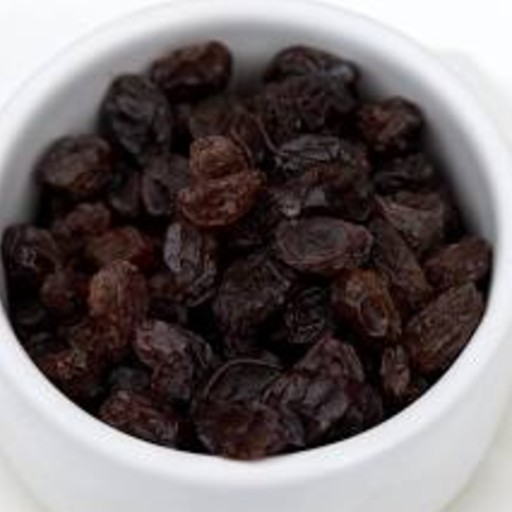
Raisin
Raisin
Raisin, is a type of grape that has been dried for around three weeks.
Nutritional Benefit of Raisins:
According to article on “Nourish by WebMD”, Raisins,
1. Are being used to treat food poisoning in history. Historically, raisins were used as currency, as awards in sporting events, and to treat ailments like food poisoning.
2. Maintain good bone and joint health. Improve wound healing and cognitive performance. Raisins contain boron. This mineral helps maintain good bone and joint health, can improve wound healing, and may improve cognitive performance.
3. Low your risk of heart disease. Research shows that raisins can lower your risk of heart disease by reducing blood pressure and blood sugar. The fibre in raisins works to lower your LDL (bad) cholesterol, which reduces strain on your heart.
4. Protect you from high blood pressure, heart disease and stroke. Raisins are a good source of potassium. Studies have found that low potassium levels contribute to high blood pressure, heart disease, and stroke.
5. Lower risk of chronic disease. Raisins have higher levels of antioxidants compared to other dried fruits. Antioxidants prevent cell damage caused by natural factors like aging and lifestyle behaviours. Some of the more potent antioxidants in raisins are called phytonutrients. These plant-based compounds have been shown to reduce the risk of chronic conditions like diabetes, osteoporosis, and cancer.
6. Anti-inflammatory, pain relief and brain-protective properties. Some of the more potent antioxidants in raisins are called phytonutrients. Research suggests that phytonutrients may have anti-inflammatory, pain relief, and brain-protective properties.
7. Keep gastrointestinal health. Raisins are a good source of soluble fibre, which aids our digestion and reduces stomach issues. Raisins also contain tartaric acid. Research shows this protein may have anti-inflammatory properties, improve intestinal function, and help regulate the balance of bacteria in your gut. One study found it may also act to reduce the risk of colorectal cancer.
8. Support oral health. Some phytonutrients in raisins — like oleanolic and linoleic acid — may have antibacterial properties. Studies have found that this effect may limit plaque-forming bacteria in our mouths. These antioxidants also help maintain healthy oral pH levels. This can keep our saliva from becoming too acidic, helping with cavity prevention.
9. Do not consume raisins in large amounts. The dense nutrient content of raisins can cause adverse side effects if eaten in large amounts.
